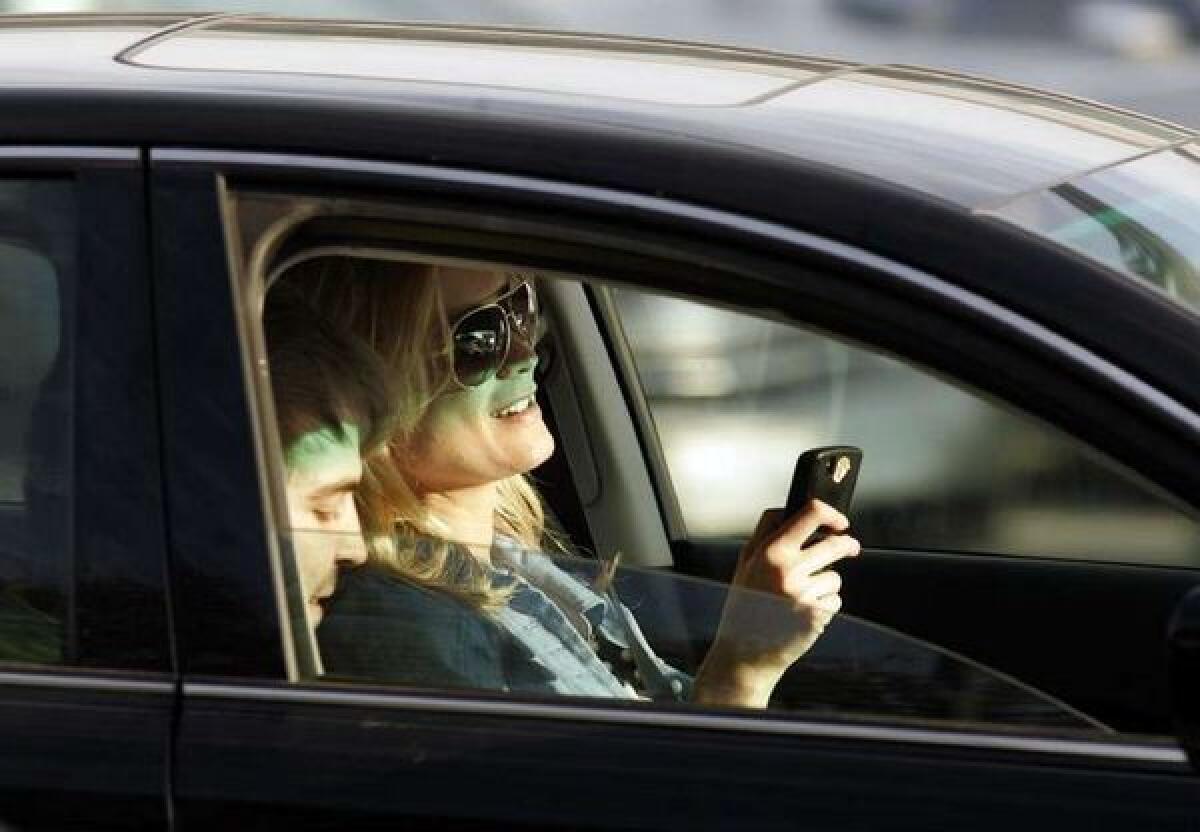Just looking at your phone while driving is now a crime

Direction-impaired drivers, prepare to meet your doom.
A California appellate court has ruled that it’s illegal to hold your phone while driving to use it for anything -- like checking Google maps, or even looking at an email or text.
The case was brought by Steven R. Spriggs, a 58-year-old professional development officer at Fresno State University. On Jan. 5, 2012, Spriggs found himself in stop-and-go traffic caused by road construction on California 41 near the California 180 interchange. For the uninitiated, that’s basically the middle of Fresno.
It was 6 p.m., and dark, and Spriggs wondered if he got off at the next exit if he could avoid the jam. So he picked up his iPhone 4 and hit the map app. Something out his left window startled him. It was California Highway Patrol motorcycle officer Jack Graham, motioning to him to pull over.
“He said, ‘Pull over, I’m going to write you a ticket for using your cellphone,’” Spriggs told me Tuesday. Graham cited Spriggs for driving a motor vehicle while using a wireless telephone. Not talking on a wireless phone. Not texting on wireless phone. But using the phone.
On April 26, 2012, Spriggs fought his ticket at trial in Fresno County Superior Court. He brought in a paper map and opened it to demonstrate that trying to use a traditional map is much more cumbersome than using an iPhone map. He lost.
Having attended law school, Spriggs decided to file his own appellate brief. There was a hearing -- “It took all of 31 seconds,” Spriggs said -- then the court took the case under advisement. Months passed.
Last week, he got a call from a Fresno newspaper reporter. “He informed me that I’d lost.”
A three-judge panel of the Appellate Division of Fresno County Superior Court found on March 21 that Spriggs had violated the California law that prohibits distracted driving.
“Our review of the statute’s plain language leads us to conclude that the primary evil sought to be avoided is the distraction the driver faces when using his or her hands to operate the phone,” wrote Judge W. Kent Hamlin. “That distraction would be present whether the wireless telephone was being used as a telephone, a GPS navigator, a clock or a device for sending and receiving text messages and emails.”
(A clock? As I mentioned, we are doomed.)
“The judge said you can’t touch the unit while you are in the car,” Spriggs told me Tuesday by phone from Santa Ana, where he was working. “I think that’s judicial overreaching.”
Spriggs had not expected the case to be made public and has been surprised at the response. The ruling has been featured on many tech blogs, and seems to have touched a nerve. “It’s been pretty stupid the last 48 hours,” he said. “I’ve been on radio stations I never thought I would have my name associated with.”
Spriggs, who was fined $160 for his ticket, would like to appeal but said he can’t do it on his own. He is very much in favor of laws that prevent distracted driving. “I believe this in my heart,” he told me. “My son was hit on his bike by a distracted driver on a cellphone,” he said. “He still suffers daily because of that injury.”
But he thinks there’s a distinction to be made between actions caused by distraction and distraction itself. “I recognize the dangers of using a cellphone while driving but everyone is distracted all the time.”
He noted that most new cars have video displays in their dashboards. “You have to manipulate them to do anything.” Why is it legal to futz around with your dashboard video screen, but not look at your cellphone to check the traffic or the time?
“I don’t know how it’s any different,” said Spriggs. “They have to look at the actions caused by our distraction, not by what’s distracting us.”
ALSO:
Man tries to escape speeding ticket by running into ocean
Alleged DUI driver in crash that killed 5 is due in Nevada court
Couple who found Dorner thought he’d been there ‘the whole time’
twitter.com/robinabcarian
More to Read
Sign up for Essential California
The most important California stories and recommendations in your inbox every morning.
You may occasionally receive promotional content from the Los Angeles Times.










